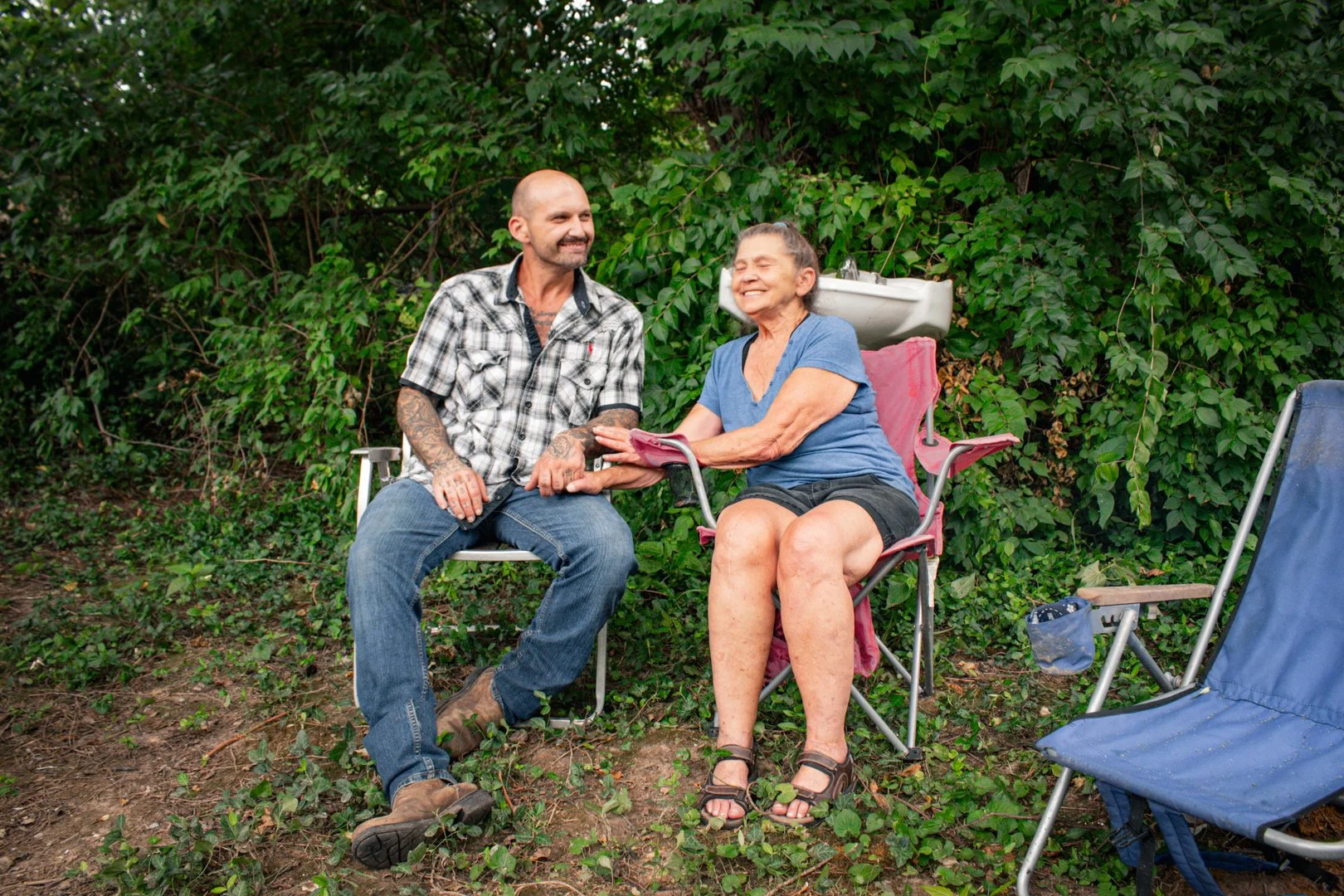Kyle’s Quiet, Steady Progress
Freedom isn’t always a clean break. Sometimes it comes with a shadow: the kind that clings to you long after the gate swings open. When Kyle walked out of prison after years behind bars, he stepped into a world that had changed while he was standing still. Nothing was familiar anymore. Not the streets, not the pace, not even himself.
“It’s like being dropped in the middle of a movie that already started,” he says, voice low and gravelly. “Everybody’s got a part, they know their lines, they’re movin’ on, and you just tryin’ to figure out what scene you’re in. I ain’t even know what I was supposed to do. Just knew I didn’t wanna go back.”
Kyle had survived more than prison. He grew up in a world where survival was never guaranteed, where the options were limited and none of them easy. The kind of environment that doesn’t just test you, it shapes you, hardens you, and then dares you to break free.
“There’s people that don’t make it outta where I come from,” he says. “I ain’t just talkin’ about jail. I’m talkin’ about everything — the streets, the hurt, the way you carry stuff that don’t belong to you. You see so much bad, it start to feel normal. And then you step out and try to be normal in a world that’s never seen what you seen. You feel like an outsider.”
He moved in with his mom for a while after his release, grateful to have a place to land but struggling to find direction. With a record, jobs were scarce. Housing was even scarcer. The stigma clung to him like smoke, impossible to wash off, even when he was doing everything right.
“Every time I filled out an application, I knew what was comin’,” Kyle says. “You see that little box that says ‘Have you ever been convicted of a felony?’ and you just sit there, like, ‘Do I even bother?’ You check ‘yes’ and it’s like the whole thing’s already over.”
Eventually, Kyle was referred to Catholic Charities ministry, St. Patrick Center and connected with a case manager through the Rapid Rehousing program. It didn’t fix everything overnight, but it gave him a foothold. A steady hand when his own felt shaky.
“She listened,” he says, shaking his head like he still can’t quite believe it. “Didn’t talk down to me, didn’t act scared. She just said, ‘Let’s figure this out together.’ Man, I ain’t had somebody say that to me in years. When you got somebody in your corner, even just one person, it changes things. Reminds you you ain’t completely lost.”
The first time he turned the key in the lock of his own front door, something shifted. It wasn’t just a house. It was proof.
“You don’t know how good it feels just to close a door behind you and know it’s yours,” Kyle says. “No yelling, no noise, no drama… just quiet. That quiet was loud at first, if that makes sense. I had to get used to it. Had to learn how to be still in peace, not just still in survival.”
He now spends most of his days at home, caring for his aging mother, fixing up things around the house, spending time in the yard. His dog trails him closely, never far from reach, part guardian, part grounding presence.
“I ain’t the type to sit still too long,” he says. “I get out there, mess with the tools, fix stuff up. I built a bench outta scrap wood the other day. It ain’t pretty, but it holds. Just like me.”
Kyle’s voice softens when he talks about the future, not because he’s unsure, but because he’s careful with it.
“I don’t need a lot,” he says. “I just wanna live the rest of my life not lookin’ over my shoulder. Help take care of my mom, maybe help somebody else who’s been through it. Lotta folks like me just need a shot. We ain’t broken, we just been knocked down a bunch.”
He pauses and looks out the window where the light is starting to fade across the lawn.
“You give somebody a roof, a place to rest, you give ‘em dignity. That’s where change starts. Not in the big stuff. In the quiet, everyday things. That’s what keeps me goin’. That’s what brought me back.”
There’s no dramatic finish. Just a man, his mom, a modest home, and a backyard full of small projects and quiet victories.
And maybe that’s the point.
That the real measure of progress isn’t how far someone has climbed. It’s how safe they finally feel standing still.





